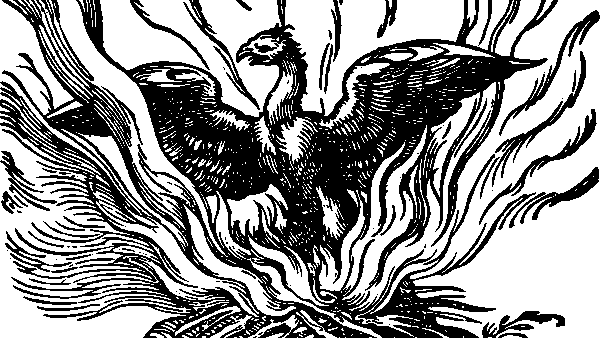What would a world with no objective reality look like? How about a language with no nouns? Jorge Luis Borges explores these ideas in a fascinating thought experiment.
The oddly named “Tlön, Uqbar, Orbis Tertius”, like many Borges fictions, is less a story than a thought experiment. The experiment is this: what would a world governed by subjective idealism look like?
In case you’re wondering, subjective idealism is the philosophy that all objects are created by the mind. As Berkeley put it, we perceive ordinary objects, and we perceive only ideas; therefore, ordinary objects are ideas.
To explore what this really means, Borges invents the fictional world of Tlön. Or rather, he tells us a story about discovering a mysterious encyclopedia in which a secret society of thinkers over the past few centuries have contributed to describing the fictional world of Tlön in as much painstaking detail as the Encyclopœdia Britannica describes our own world.
He gives us wonderful descriptions of different aspects of the society, such as their language, one of which contains no nouns and is based instead on verbs:
For example, there is no noun that corresponds to our word “moon,” but there is a verb which in English would be “to moonate” or “to enmoon.” “The moon rose above the river” is “hlör ufang axaxaxasmio,” or, as Xul Solar* succinctly translates: Upward, behind the onstreaming it mooned”
Another language of Tlön is based on strings of adjectives:
One does not say “moon”; one says “aerial-bright above dark-round” or “soft-amberish-celestial” or any other string.
He also describes the philosophical debates on Tlön, including a centuries-long controversy over a famous paradox:
On Tuesday, X is walking along a deserted road and loses nine copper coins. On Thursday, Y finds four coins in the road, their luster somewhat dimmed by Wednesday’s rain. On Friday, Z discovers three coins in the road. Friday morning X finds two coins on the veranda of his house.
To us, of course, this is everyday reality, but to people who believe in subjective idealism, it makes no sense at all. If objects are mental inventions, then how can the coins exist when nobody is perceiving them? Where are they between Tuesday, when X loses them, and Wednesday and Friday when they are found again?
Borges gives us a series of absurd-sounding explanations—absurd to our ears, but plausible to people who have no concept of materialism. What absurdities, after all, have our great scholars invented to reconcile their views of the world with an obstinate reality, and what absurdities do we continue to invent today?
It is easier, it seems, to engage in bizarre mental contortions than to re-evaluate the entire basis of our view of the world. Another thought that comes up as a result of reading this story: if reality is shaped by our way of understanding it, then how much of what we understand today as reality is as bizarre as the beliefs of the people of Tlön? And if we could reach a new understanding of reality—perhaps based on the latest research in physics, much of which seems to flagrantly contradict our received views of the world—how would the world and our understanding of it be altered?
“Tlön, Uqbar, Orbis Tertius” is a fascinating thought experiment, but perhaps I’m being unfair in presenting it as just that. There’s also a story woven around it, in which Borges and his literary friends go hunting around in books and encyclopedias trying to uncover the mystery. And, as usual, there are some wonderful descriptions:
“My father had forged one of those close English friendships with him (the first adjective is perhaps excessive) that begin by excluding confidences and soon eliminate conversation. They would exchange books and newspapers; they would wage taciturn battle at chess—I recall Ashe on the hotel veranda, holding a book of mathematics, looking up sometimes at the irrecoverable colors of the sky.”
In a postscript, Borges fills us in on how the plot to insert descriptions of Tlön in books and encyclopedias unfolded, and then he describes the next stage: how physical items from Tlön have started appearing, and the rest of the vast encyclopedia is now being written. Fascination with the ordered world of Tlön is growing to such an extent that its history is erasing our own, and its languages are replacing English, French and Spanish.
Like the rest of the story, it’s not very believable, but I think Borges is alluding to the fascination people have with grand, ordered systems that promise something better than the ordinary material world we live with. Writing in the 1940s, in the shadow of Nazism and Stalinism, Borges was perhaps using the hypnotic power of Tlön to explain the appeal of equally nonsensical world systems closer to home.
This post is part of my Borges Marathon, a reading and discussion of all the fictions of Jorge Luis Borges. I’d love to hear your comments on this story and the ideas it raises, so please jump in using the form below!




There are 2 comments
“It is easier, it seems, to engage in bizarre mental contortions than to re-evaluate the entire basis of our view of the world. Another thought that comes up as a result of reading this story: if reality is shaped by our way of understanding it, then how much of what we understand today as reality is as bizarre as the beliefs of the people of Tlön?”
Oh exactly so! And oh the ways we use and twist science and history and events to make it fit the reality we want to have. We all do it on a small scale in our daily lives, but really it is the wealthy and political power elites that engage in this kind of behavior that affects people on a global scale. I mean, over the summer Biden declared the COVID pandemic over. And of course there is the former president who shall not be named, along will a host of other world leaders. I feel like I am stuck in variations of The Emperor’s New Clothes. Clever Borges to come up with a story that takes it over the top.
Definitely! I’m reminded of that Fredric Jameson quote that we find it easier to imagine the end of the world than the end of capitalism. So we are locked into a system premised on limitless growth, even though we know it will mean our destruction. It’s interesting to see such contemporary resonance in such an old story, right?